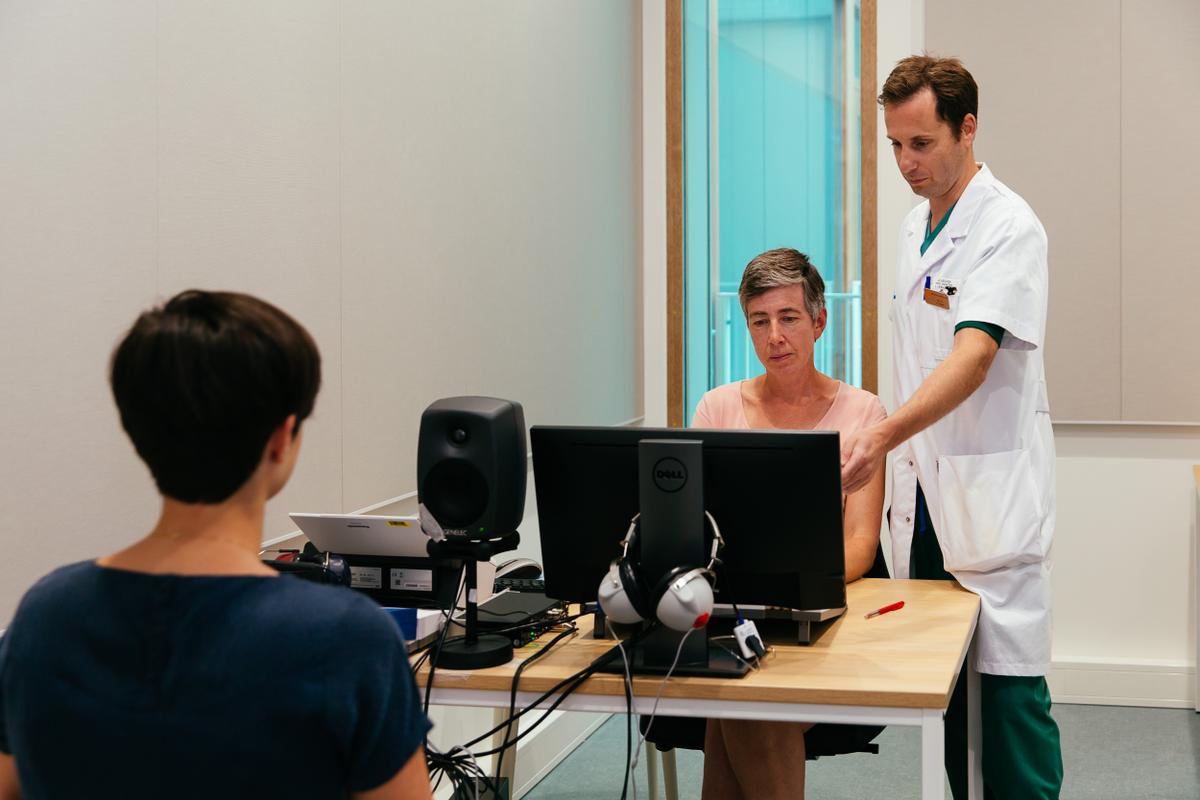The new hearing system, including microphone and amplifier, is implanted completely underneath the skin on the skull. It is then connected to a sound converter in the middle ear. The actual implantation is a very intricate procedure. “This new system requires complex ear surgery,” Professor Nicolas Verhaert, ENT (nose, ear and throat) specialist at UZ Leuven, explained. “But all implants to date have been without problems.”
Hearing day and night
The system is primarily intended for people who are unable to use an external hearing system. “Sometimes people cannot use an ordinary hearing aid for medical reasons, e.g. if the ear canal is too narrow or they produce too much earwax,” Professor Verhaert explained. “And there are practical reasons. An external system is usually not appropriate for people who work in a dusty environment or are involved in intensive sports.”
Because the system works day and night it offers an additional advantage, e.g. people can hear their baby crying again during the night. And the fact that it is invisible is also a bonus.
Body sounds
Because the microphone is implanted in the body, the system will also pick up body sounds. This may be a bit of a nuisance at first, but after a while the brain will adapt and the sounds will disappear into the background. One permanent disadvantage is that wearers can no longer have an MRI scan.
Only patients who can still process sufficient sounds will qualify for the invisible implant. People with severe forms of hearing loss or deafness are not eligible. The system is not yet reimbursed in Belgium for patients who do qualify.
Sometimes people cannot use an ordinary hearing aid for medical reasons, e.g. if the ear canal is too narrow or they produce too much earwax.prof. dr. Nicolas Verhaert
About ear surgery at UZ Leuven
UZ Leuven has an experienced team of ENT (ear, nose and throat) surgeons, who conduct hundreds of operations to improve hearing every year. A multi-discipline team at the completely new hearing centre on the Gasthuisberg Campus provides treatment for moderate to very severe hearing loss and deafness, both congenital and age related.
Support research into auditive well-being
Hearing problems have a major impact on a patient's quality of life and can lead to anxiety, depression and social isolation. People tend to wait for up to seven to ten years before they seek help. Worldwide approximately 466 million people suffer from hearing problems. It is estimated that by 2050 this number will have risen to 900 million.
Er is nog veel onderzoek nodig naar tijdig opsporen van gehoorverlies zowel bij jongeren als ouderen. Would you like to support resaerch into auditive well-being? This is possible via the KU Leuven patronage.
